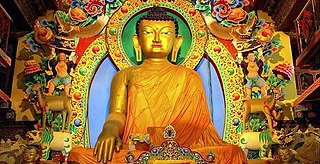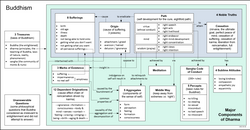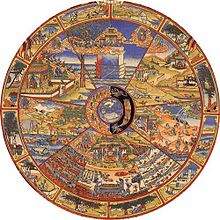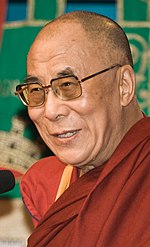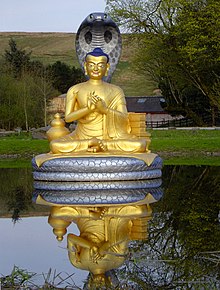Outline of Buddhism
Buddhism (Pali and Sanskrit: बौद्ध धर्म Buddha Dharma) is a religion and philosophy encompassing a variety of traditions, beliefs and practices, largely based on teachings attributed to Siddhartha Gautama, commonly known as the Buddha, "the awakened one".
Gautama Buddha Schools of Buddhism Timeline: Development and propagation of Buddhist traditions (c. 450 BCE – c. 1300 CE) IndiaEarlySangha Sri Lanka &Southeast Asia Tibetan Buddhism Nyingma East AsiaEarly Buddhist schoolsand Mahāyāna(via the silk roadto China, and oceancontact from India to Vietnam)TangmiNara (Rokushū)Shingon NichirenJōdo-shū Central Asia & Tarim Basin Greco-Buddhism Silk Road Buddhism Theravada — literally, "the Teaching of the Elders" or "the Ancient Teaching", it is the oldest surviving Buddhist school.
It is relatively conservative, and generally closer to early Buddhism,[2] and for many centuries has been the predominant religion of Sri Lanka (now about 70% of the population[3]) and most of continental Southeast Asia.
Mahayana — literally the "Great Vehicle", it is the largest school of Buddhism, and originated in India.
"[4][5] Vajrayana Early Buddhist schools Buddhist modernism Buddhism by country Buddhist texts Pali literature History of Buddhism Three Jewels Four Noble Truths Three marks of existence Skandha Describing the causal nature of everything in the universe, as expressed in the following formula: Describes how suffering arises.

